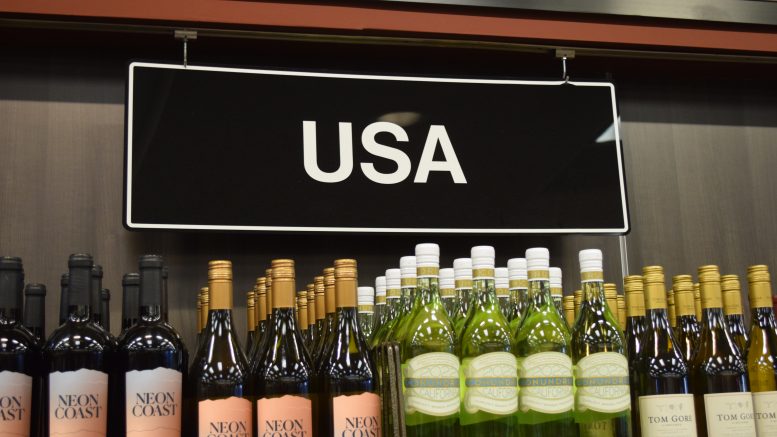Prime Minister Justin Trudeau and U.S. President Donald Trump have reached an agreement on Monday, Feb. 3 to pause proposed tariffs for at least 30 days — just hours before they were set to take effect on Tuesday, Feb. 4.
The tariff pause comes after a “good call” with President Trump, Trudeau wrote on social media, in which Canada made additional commitments to boost border security. These commitments include appointing a fentanyl czar, listing cartels as terrorists, ensuring 24/7 eyes on the border and launching a Canada-U.S. Joint Strike Force which will combat organized crime and money laundering.
“Nearly 10,000 frontline personnel are and will be working to protect the border,” wrote Trudeau. “I have also signed a new intelligence directive on organized crime and fentanyl and we will be backing it with $200 million.”
Trump stated on social media that he is “very pleased with this initial outcome,” but that the pause will provide time “to see whether or not a final economic deal with Canada can be structured.”
Earlier on Feb. 3, Trump had stated that tariffs on goods from Mexico would be paused for a month for negotiations. This came after Mexico President Claudia Sheinbaum called for 10,000 members of the national guard to reinforce their northern border.
Prime Minister Justin Trudeau previously announced on Feb. 1 that the federal government would be imposing 25 per cent tariffs on $155 billion worth of American goods after U.S. President Donald Trump launched tariffs on all Canadian goods.
Canada was to implement 25 per cent tariffs on $30 billion in goods imported from the U.S., effective Feb. 4. These tariffs were to apply to hundreds of items, including food and drinks, clothing and footwear, furniture, lumber, automotive parts and more. A full list of U.S. products that were to be subjected to the tariffs was released by the Department of Finance.
A second phase of tariffs initially announced by Trudeau was expected to come into effect in the coming weeks, imposing tariffs on an additional list of U.S. goods worth $125 billion.
Canada’s tariff plan — which is now paused — was in response to the “unjustified and unreasonable tariffs” imposed by the U.S. on Canadian goods, according to a press release from the Department of Finance.
On Saturday, Feb. 1, Trump issued executive orders imposing a 25 per cent tariff on Canadian and Mexican imports and a 10 per cent tariff on all imports from China. The measures were to take effect on Feb. 4. Energy imports from Canada — including natural gas, oil, electricity, coal, uranium and critical minerals — were to have a lower 10 per cent tariff.
President Trump imposed the tariffs through the International Emergency Economic Powers Act, “because of the major threat of illegal aliens and deadly drugs killing our citizens, including fentanyl,” he wrote in a social media post. “We need to protect Americans, and it is my duty as president to ensure the safety of all.”
“We didn’t ask for this, but we will not back down,” said Trudeau during the counter-tariff announcement. “Unfortunately, the actions taken today by the White House split us apart instead of bringing us together.”
“These U.S. tariffs are plainly unjustified,” said federal Finance Minister Dominic LeBlanc in a press release from Feb. 1. “They are detrimental to both American and Canadian families and businesses. Working with provincial, territorial and industry partners, our singular focus is to get them removed as quickly as possible.”
Less than one per cent of the fentanyl and illegal border crossings into the U.S. come from Canada, according to the federal government. The U.S. Customs and Border Protection said it seized 19.5 kg of fentanyl at the Canadian border between October 2023 and September 2024, compared to 9,570 kg of fentanyl seized from the U.S.-Mexico border during the same time period.
Trump had previously stated on social media in November 2024 that one of his first executive orders after being inaugurated would be to implement a 25 per cent tariff on all products coming into the U.S. from Canada and Mexico. “This tariff will remain in effect until such time as drugs, in particular fentanyl, and all illegal aliens stop the invasion of our country!” he wrote at the time.
The following month, in December 2024, the Government of Canada announced a $1.3 billion investment plan to strengthen border security and the country’s immigration system. The plan focused on supporting the detection and disruption of the fentanyl trade, introducing new tools for law enforcement, enhancing operation coordination, increasing information sharing and minimizing unnecessary border volumes.
Trudeau stated on Feb. 1 that the federal government was considering non-tariff measures alongside provinces and territories, such as measures relating to critical minerals, energy, procurement and other partnerships. He also urged Canadians to choose Canadian products and support Canadian businesses.
The day after Trudeau announced Canada’s counter-tariff plan, Trump wrote on social media that Canada should become the 51st state and would face no tariffs, as well as lower taxes and better military protection.
Canada is the top customer for U.S. goods, buying more U.S. goods than China, Japan, France and the United Kingdom combined. The nation is also the largest export market for 36 states, according to the federal government.
Manitoba reverts choice to end U.S. liquor sales
Manitoba Premier Wab Kinew responded to the pause of Trump’s tariffs by reverting a choice to pull U.S. alcohol off of Liquor Mart shelves — a measure which was set to take effect on Feb. 4.
“I continue to stand by the superiority of Canadian booze relative to some of the products from south of the border, but for those who are fans of American booze, I can tell you, we’ll be putting those back on the shelves,” said Kinew at a news conference on Feb. 3.
On Sunday, Feb. 2, Kinew announced that the provincial government issued a directive to Manitoba Liquor and Lotteries to stop the sale of U.S. liquor in the province.
“This means that we are going to be taking $80 million dollars out of the U.S. economy,” said Kinew at the time. “We have to stand up for jobs in our province. We have to stand up for manufacturers, and the [agriculture] industry, and the energy industry and everyone else who is going to be threatened by these tariffs.”
Kinew also urged grocery stores on Sunday to make it clear which products are Canadian and made in Manitoba.
He indicated that steps to bolster the economy will be rolled out in the upcoming spring budget. “We have to respond to the Trump tariff tax with immediate measures to support our economy that also give us time and space to be able to pivot toward where the good jobs are going to be in the future.”
The provincial government said that support for businesses and workers in response to the U.S. tariffs would be rolled out throughout the week, including tax deferrals and other supports.
A tariff hotline and website had also been launched by the provincial government prior to the tariff pause to answer questions about trade with the U.S.




